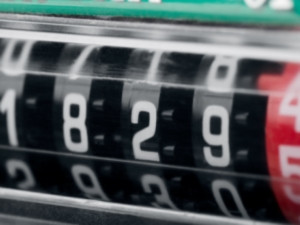
The Department of Cooperative Governance is investigating an ambitious project to install smart water and power meters across all 14.5 million homes in SA to stop municipalities haemorrhaging money.
It has issued a request for information from smart meter providers to run pilot projects in 12 municipalities across SA. The selected municipalities vary in size, with some being large and others being more rural.
However, government's plan is being seen as overly ambitious as it will require consumer buy-in, more infrastructure - and could end up costing taxpayers as much as R20 billion. The department is not alone in turning to smart meters as a solution, as the City of Johannesburg wants 150 000 smart meters in homes by the end of October as it seeks to limit the impact of load-shedding.
Connected grid
The department's project aims to improve revenue collection, as municipalities are owed R96 billion. In its request for information, the department notes municipalities need help in collecting water and electricity revenue, which is why smart meters are being looked at as a way to strengthen municipal finances.
The focus of the project is not only on individual meters, but also creating smart power and water grids across SA, it says.
According to the department, the system will allow municipalities to have two-way communication with bulk and customer smart meters; and execute tasks and instructions remotely, such as disconnections and reconnections. Government says the meters will provide valid, accurate and complete metering information. "A fully connected and live smart meter system enabling a smart grid for each municipality."
Huge undertaking
Electrical engineer Rodney Green says government's optimism is misplaced because of the scale of the project. He questions whether government can rollout the system because it would require control centres and a communication link to all meters. "I can't see that happening in a rush, [although] it sounds very impressive."
In areas where there is electricity, there should also be cellphone coverage, although the quality of signal does not have to be high as the data traffic is minimal, says ICT commentator Adrian Schofield.
Green adds the signals will probably be sent via existing cellphone networks. However, cellular providers have for years been lamenting a lack of capacity available for data because government has yet to release more spectrum.
In addition, the City of Johannesburg's project has come under fire because readings are inaccurate, says Democratic Alliance environment and infrastructure shadow minister, Ralf Bittkau. "The signal in some areas is not strong enough to transmit the data and as result of the above, the city uses estimates, which are often 300% more than normal usage and thus disputes get registered."
Green also questions where the funding for such a project will come from, while Schofield estimates the project could cost as much as R15 billion to R20 billion. Schofield says such a system would represent "significant progress" but will require consumer buy-in.
Schofield says, based on the number of units to be supplied, installed and maintained, this could be power's equivalent of digital TV migration, which has been in the works since 2006 and has stalled numerous times.
Potential upside
However, there are also advantages to smart meters if everything goes according to plan. The system could ensure accurate bills as long as meters are accurate, but will only ensure municipalities are paid if "our more enterprising consumers do not find a way of bypassing the meters", says Schofield. "The biggest challenge will be consumer acceptance."
Green adds the meters may help municipalities have tighter credit control over future debt, but they cannot recoup the R96 billion that has already been billed and not paid. He adds municipalities differ across SA, with some being well managed while others are not well run, which adds another wrinkle to the plan.
The department has chosen a mix of municipalities that differ in size to determine how practical the project is, adds Green. Schofield notes the 12 municipalities chosen out of a possible 280 (around 4.3%) are enough to test the concept.
Share